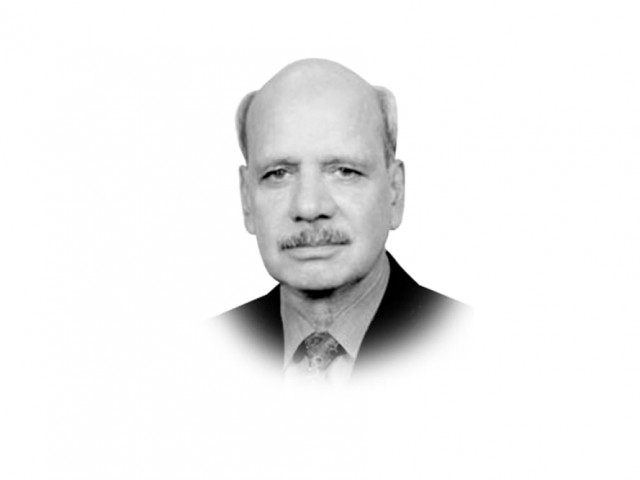Revolution or bust
A ‘homeopathic’ revolution, if you like, to prevent the one that threatens to spin out of control.

Some of the safety dykes have often been talked about. The ruling regime, though performing poorly, landed there through polls generally accepted as fair, and the free media helps release much of the pent-up steam. Some other factors, too, have helped keep the masses off the streets. A lively non-state sector provides gainful employment to a large segment of the population and some of us console ourselves that ‘tomorrow will be another day’. All the same, if the slide continues, its cumulative effect, or another Raymond Davis, may prove to be the proverbial last straw. If that happens, the aftermath will be more unpredictable and far more complex to manage than in Tunis and Cairo.
Popular uprisings are not all bad. But they follow a random course. No matter what or who mobilised the masses, the movement is likely to be hijacked by the most organised institution. The Marxist-Leninist Tudeh Party initiated the resistance against the Shah, but the Iranian Revolution was taken over in quick time by forces loyal to Khomeini. And the unrest in Kashmir in the early 1990s was ignited by the Jammu and Kashmir Liberation Front, but Hizbul-Mujahideen, backed by the Jamaat-i-Islami’s well-established cadres, positioned itself more effectively to lead the struggle against the Indian occupation.
Then there is always the army. In Tunisia, in the absence of any organised civil society faction, the armed forces smoothly took charge. In Egypt, too, the military helped by the Ikhwan, who wisely took a back seat, is all set to steer the course of the ‘great revolution’— and to deflate it. In the good old days, were Pakistan to face a similar situation, the army would have had no problem moving through the ‘window of opportunity’ to restore stability — a euphemism for status quo ante. Not anymore.
Now if there was a massive upheaval, the man on horseback would have to be very mindful of assorted groups: Armed and unarmed; mostly of religious denomination, but also some motivated by politics. If the army took them on headlong, it could lead to a civil war. Incorporating the ‘reconcilable’ and containing or confronting some others might work; or it might not.
To avoid this worst-case scenario, many wise heads have put together long lists — some look more like wish- or laundry-lists — of what must be done. The problem is that the state apparatus would do the needful only when it has no other choice — even in the US, if one was to believe Howard Zinn, the historian. In our case it may take another mass movement to bring about the course correction: A ‘homeopathic’ revolution, if you like, to prevent the one that threatens to spin out of control.
All that we have to do now is to find someone to lead it. It seems only proper that our neo-liberals, who have most to lose from a ‘jihadi’ onslaught, accept this role. Otherwise, they may have to grow beards or go get an abaya.
Published in The Express Tribune, March 10th, 2011.














COMMENTS
Comments are moderated and generally will be posted if they are on-topic and not abusive.
For more information, please see our Comments FAQ